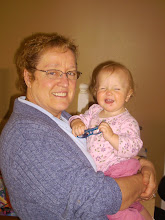When I posted "Broca's Brain" in December, I promised to do a post about memory. The thinking I have done since then has me totally befuddled about the accuracy of anyone's memory. If the accuracy of memory is affected by so many things, how can anyone testify as a witness at a trial, for example, or make a judgment of anyone or anything based on what we remember?.
My favorite recent example involves the incident at the Vancouver Airport where a Polish immigrant died after being tazered by four RCMP officers. At the enquiry following the death, these four officers recounted the incident in four very similar stories. They described the Polish guy as violent and threatening. (He had a stapler in his hand.) They said he threatened them and they 'felt' fear for their lives. After he was tazered once, he continued to scream at them and threaten them. The problem with their story is that it was not supported in any material way by the amateur video taken by a bystander. The ruling of the enquiry after the death was that their use of tazers was premature and inappropriate.
Most people think that after the incident, the four officers colluded on their story. There was evidence, contrary to their testimony, that they had decided ahead of time based on what they were told about the situation, to use tazers on the guy. They had a firm, pre-conceived notion about what they would encounter and as a result actually saw what they expected, even though it was not there.
Does this mean that what we think becomes a self-fulfilling prophecy? We see what we expect to see, even though it doesn't really happen that way? The beating of Rodney King in Los Angeles in 1992 by four police officers using excessive force parallels this story of Robert Dziekanski at Vancouver airport. There was an amateur video in that case also. In his book "Blink," Malcolm Gladwell adds some other vivid examples.
All this convinces me that suggestion, adrenaline, past experience, and expectation can create what is effectively a false memory. I have seen some examples of this process from people in my own life recently. As I result, I am very interested in memory and how it works. The examples above demonstrate that people's perception can be seriously skewed so that not only can they see miss crucial parts of the event, but they can actually see and then remember things that didn't happen.
Researchers interviewed a large number of people about their experience at Disneyland. In the corner of the interview room was a lifesize cut-out of Bugs Bunny. After the people had been asked a number of other questions, they were asked if they remembered seeing Bugs Bunny when they were at Disneyland. 45% of said them said they did. "He was a person dressed in a Bugs Bunny costume and he shook my hand." The problem? Bugs Bunny is not a Disney character and would not have been at Disneyland. The cutout in the room was a powerful suggestionthat created the memory for them.
Here is something else that research has shown about memory:
The more a person thinks about an event over time, the less accurate his/her memory of the event becomes. How does this work? Researchers have discovered a drug that causes a person not to remember events that happen while under the influence of the drug. In other words, it interferes with the brains ability to store the memory. If researchers administer the drug to people and ask them to describe their memory of a previous event, when the drug wears off, the subjects can no longer remember the event! The act of remembering erased the initial memory but the new thinking was not recorded so it was ALL lost.
The conclusion: Each time we remember an event, the act of calling up the memory erases the initial memory and the thinking we do about the event is stored as the new memory. That means that what we think about the memory becomes part of the new memory as if it had happened. If we overlay our memory with a series of what-ifs, or add our own meaning, or think about the situation, and even though we can't remember everything exactly, we imagine how it MUST have happened, these new details become part of our memory of the event. Ergo, over time the memory becomes less and less accurate.
What this all means to me, is that as humans with frailties, we can never be sure that we are remembering anything exactly right. If our judgments of other people are based on memory, and if we have done a lot of thinking and remembering events as the basis of our judgments, there is a gigantic possibility that we have got it all wrong. The implications of this are huge - what we think of our parents, for example. Negative events in our life probably were not actually what we remember. Because of this it is important that we be forgiving and give everyone the huge benefit of the doubt, even if we think we "saw what we saw and heard what we heard."
I wonder if, when we get the instant replay of our lives at the last day, we will find out that much of what we thought was just plain dead wrong.
I wonder.
Subscribe to:
Post Comments (Atom)

No comments:
Post a Comment